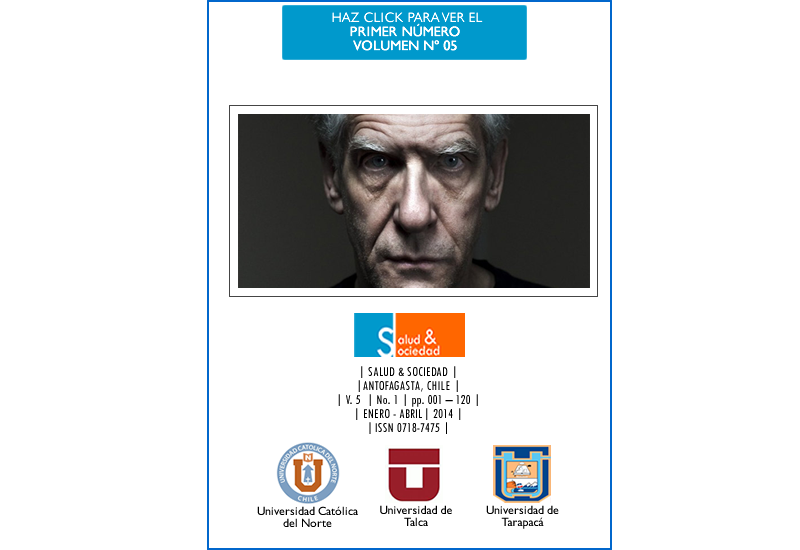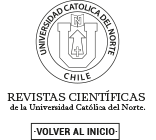Paraguay: de las violaciones a los derechos humanos a la justicia transicional.
DOI:
https://doi.org/10.22199/S07187475.2014.0001.00006Palabras clave:
dictadura, represión, derechos humanos, justicia transicional, Paraguay, dictatorship, repression, human rights, transitional justice,Resumen
Objetivo: Se analiza el impacto de las violaciones a los derechos humanos cometidas durante la dictadura de Stroessner (1954-1989) en Paraguay. Método: Se obtienen datos de 400 participantes residentes en las zonas más afectadas por la represión paraguaya. Se evaluó el impacto emocional, los efectos sobre la participación social y la percepción de la población sobre las medidas transicionales implementadas. Resultados: se desprende que este periodo, de gran impacto en las zonas rurales, evoca emociones negativas, acompañadas una alta necesidad de conversar socialmente sobre lo ocurrido en dicho período. También se constata una alta percepción de que las víctimas no lograrán perdonar a los responsables de la violencia. Conclusión: La población conoce y valora positivamente las medidas que se han adoptado en relación al pasado, aunque percibe negativamente el clima emocional del país. Este clima social se asocia a un menor deseo de alcanzar la reconciliación, que asciende entre quienes conocen y consideran sinceras y eficaces las disculpas pronunciadas por Lugo. La participación en audiencias públicas se asocia a mayor participación comunitaria, aunque también a mayor emocionalidad negativa.
Objective: The impact of human rights violations committed in Paraguay during the Stroessner dictatorship (1954-1989) was analyzed. Method: Data were obtained from 400 participants living in the areas most affected by repression. The emotional impact was assessed, as were the impact on social participation and the perception of the public regarding the transitional measures, which were implemented. Results: It is shown that this period, which had great impact in rural areas, evokes negative emotions which are accompanied by a strong need for social conversation about what happened during that time. Also observed is a strong perception that victims will not succeed in forgiving those responsible for the violence. Conclusion: The population knows and attaches positive value to the measures taken in relation to the past, but negatively perceives the emotional climate of the country. This social climate is associated with a lessened desire to achieve reconciliation, which rises among those who are aware of the apologies given by Lugo and believe them to be sincere. Participation in public hearings is associated with greater community participation, but also with high negative emotionality.
Citas
Arnoso, M. y Pérez-Sales, P. (2013). Representaciones sociales de la víctima: entre la inocencia y la militancia política. Psicoperspectivas, 12 (1), 50-71.
Avruch, K. (2010). Truth and Reconciliation Commissions: Problems in Transitional Justice and the Reconstruction of Identity. Transcultural Psychiatry, 47(1), 33-49.
Bar-Tal, D. (2011). Intergroup Conflicts and their Resolution: Social Psychological Perspective. Hove and New York: Psychology Press: Frontiers of Social Psychology Series.
Beristain, C. (2005). Reconciliación y democratización en América Latina: un análisis regional. Papel de las políticas de Verdad, Justicia y Reparación. In: IIDH (Ed.), Verdad, justicia y reparación. Desafíos para la democracia y la convivencia social. San José: International IDEA.
Beristain, C., Páez, D., Rimé, B. & Kanyangara, P. (2010). Psychosocial effects of participation in rituals of transitional justice: A collective-level analysis and review of the literature of the effects of TRCs and trials on human rights violations in Latin America. Revista de Psicología Social, 25(1), 47-60.
Bobowik, M., Bilbao, M. A. & Momoitio, J, (2010). Psychosocial effects of forgiveness petition and “self-criticism” by the Basque Government and Parliament directed to the victims of collective violence. Revista de Psicología Social, 25(1), 89-100.
Brouneus, K. (2008). Truth-Telling as Talking Cure? Insecurity and Retraumatization in the Rwandan Gaçaca Courts. Security Dialogue, 39(1), 55-76.
Cárdenas, M., Páez, D. y Rimé, B. (2013). El impacto psicosocial de los procesos transicionales en Chile: evaluación de los efectos de las Comisiones Nacional de Verdad y Reconciliación y Prisión Política y Tortura”. Revista de Psicología Social 28(2), 145-156.
Comisión Verdad y Justicia (2008). Tierras Mal Habidas. Informe Final, Anive haguâ oiko. Asunción: Comisión Verdad y Justicia Paraguay – CVJ.
Gibson, J. (2004). Overcoming Apartheid: Can Truth Reconcile a divided Nation? New York: Russell Sage Foundation.
Hamber, B. (2007). Reparations as Symbol: Narratives of Resistence, Reticence, and Possibility in South Africa. In: J. Miller y R. Kumar (Eds.), Reparations: Interdisciplinary Inquiries. New York: Oxford University Press.
Jelin, E. (2002). Las conmemoraciones: Las disputas en las fechas “infelices”. Madrid: Siglo XXI.
Jelin, E. y Langland, V. (2003). Monumentos, memoriales y marcas territoriales. Madrid: Siglo XXI.
Kaminer, D., Stein, D., Mbanga, I., & ZunguDirwayi, N. (2001). The Truth and Reconciliation Commission in South Africa: relation to psychiatric status and forgiveness among survivors of human rights violations. British Journal of Psychiatry, 178, 373-377.
Kanyangara, P. (2008). Justice et Verite après un Genocide: Impact Psychosocial sur le Pardon et la Reconciliation (Tesis doctoral). Faculte de Psychologie, Louvain, Belgique.
Kanyangara, P., Rimé, B., Philippot, P. & Yzerbit, V. (2007). Collective Rituals, Emotional Climate and intergroup perception: Participation in Gacaca Tribunals and the Assimilation of the Rwandan Genocide. Journal of Social Issues, 63, 273-288.
Lira, E. (1991). Psicología de la amenaza política y el miedo. Santiago de Chile: Chileamerica. CESOC.
Lykes, B., Beristain, C. y Cabrera, M. L. (2007). Political Violence, Impunity, and Emotional Climate in Maya Communities. Journal of Social Issues, 63, 369-386.
Nadler, A., Malloy, Th., y Fisher, J. (2008). The social psychology of intergroup reconciliation. Oxford: Oxford University Press.
Navarro-García, S., Pérez-Sales, P., Martínez, J., Barczay, D., Mendez-Castillo, A., Woltke, C., Lemus, L., López-Sandoval, M., Fernández-Pinto, I. y Eiroá-Orosa, F. (2009). Exhumaciones, verdad y justicia en Guatemala, estudio de opinión a nivel nacional. Guatemala: Equipo de Estudios Comunitarios y Acción Psicosocial.
Páez, D., Basabe, N. y González, J. L. (1997). Social Processes and Collective memory. In: J. Pennebaker, D. Páez y B. Rimé (eds), Collective memory of Political Events, Hillsdale, NJ: Lawrence Erlbaum.
Pérez-Sales, P. y Navarro-García, S. (2007). Resistencias contra el olvido. Trabajo psicosocial en procesos de exhumaciones. Barcelona: Gedisa
Pérez-Sales, P., Vázquez, C. y Arnoso, M. (2009). Aprendizaje postraumático individual y colectivo ante situaciones de terrorismo y violencia colectiva: Datos para un debate. En: I. Márquez, A. FernándezLiria & P. Pérez-Sales (Eds.), Violencia y salud mental. Madrid: Asociación Española de Neuropsiquiatría, pp. 349-376.
Rimé, B., Kanyangara, P., Yzerbyt, V. & Páez, D. (2011). The impact of Gaçaca tribunals in Rwanda: Psychosocial effects of participation in a truth and reconciliation process after a genocide. European Journal of Social Psychology, 41(6), 695-706. doi: 10.1002/ejsp.822
Sikkink, K. y Booth–Walling, C. (2007). The Impact of Human rights in Latin America. Journal of Peace Research, 44(4), 427-445.
Tavuchis, N. (1991). Mea Culpa: a Sociology of Apology and Reconciliation. Stanford: Stanford University Press.
Valencia, J., Momoitio, J. y Idoyaga, N. (2010). Social Representations and Memory: The Psychosocial impact of the Spanish “Law of Memory”, related to the Spanish Civil War. Revista de Psicología Social, 25(1),73-86.
Publicado
Cómo citar
Número
Sección
Los autores continúan como propietarios de sus trabajos, y pueden volver a publicar sus artículos en otro medio sin tener que solicitar autorización, siempre y cuando indiquen que el trabajo fue publicado originariamente en Revista Salud & Sociedad (ISSNe:0718-7475).



_(1).png)





